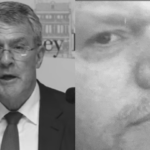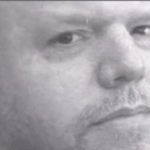The Duopoly Crucifies Whistleblowers: A Robust Post-Election Crossbench Would Protect Them

Then shadow attorney general Mark Dreyfus told the Canberra Times in October 2021 that he understood the 2013 legislation that he produced to protect public service whistleblowers, during an earlier stint as the nation’s chief lawmaker, needed improving, and if he was elected back into office for the 47th Australian parliament, he’d be fixing the issue of unprotected disclosers.
Dreyfus was making these comments in opposition, as the 2018-commenced witch hunt against public service whistleblowers, which involved ex-ASIS agent Witness K, his esteemed barrister Bernard Collaery, former ADF lawyer David McBride and former ATO officer Richard Boyle, was peaking in the public sphere.
Then Coalition AG Christian Porter greenlighted the whistleblower hitlist circa 2018, and by 2021, the nation had borne witness to the Morrison government having spent millions attempting to prosecute these honest public servants who exposed real government wrongdoing and illegal acts, and who in the public eye were heroes.
Then attorney general Dreyfus oversaw the passing of the Public Interest Disclosure Act 2013 (Cth) (PID Act). The 2016 delivered Moss report then identified 33 issues to improve it. Yet, the Coalition ignored this. So, when Dreyfus made the claim to the Times that he’d improve his earlier attempt to protect disclosers, there was no real reason to doubt him, besides his fumbled first time around.
But now the nation finds itself at the end of the 47th parliament, and Dreyfus’ attempt at being the saviour of whistleblowers over his time in office has only shown the issues involved in the 2013 PID Act were actually preferred, as he’s now revealed himself to be a master of appearing to take action while delivering nothing but a touch of window dressing.
So, the message is clear for those who adovcate for the protection of whisteblowers and open government, an expanded crossbench under a minority Labor government in the next parliament is the only hope for public service disclosers, as it will have the power and the will to progress the reforms Dreyfus promised back in October 2021 and has since shirked on producing.
A sign of things to come
“Labor talked a big game about transparency before forming government, and they point to the National Anti-Corruption Commission as evidence that the job is done,” said Independent MP Andrew Wilkie. “But the reality is that, until we have effective whistleblower protections, the NACC will be diminished because people won’t have the confidence to raise allegations.”
“In other words, it’s way beyond time for Labor to get serious about transparency and good governance, including by enshrining media freedom laws, meaningfully and not just strategically reforming political donations, legislating truth in political advertising and, vitally, overhauling whistleblower protections,” the Independent for Clark said on 10 February, as he introduced the multi-crossbencher drafted Whistleblower Protection Authority Bill 2025.
Dreyfus promised two sets of PID Act reforms on election: one to cover raising allegations with the new, yet already failing, NACC, or the federal anticorruption commission, and another major overhaul covering the Moss report findings, as well as other reforms. The initial NACC reforms were passed in mid-2023. But Wilkie could still make the above statements more than 18 months later.
The new legislation brought by Wilke, MP Dr Helen Haines, Senator David Pocock and Senator Jacqui Lambie seeks to establish a key reform, which is that of a Whistleblower Protection Authority, to oversee the progress of cases and provide disclosers with assistance.
But needless to say, the duopoly abhors this idea, while this legislation is likely to feature more prominently in the 48th parliament.
“My point is that whistleblowers make Australia a better place and we should be doing everything we can to support them,” Wilkie, who was a noted Iraqi War whistleblower at the turn of the century, underscored.
“Otherwise, we won’t have whistleblowers, even though they’re so essential to our democracy.”
Ensuring whistleblower deterrence
Former ASIS officer Witness K exposed the Australian government as having bugged the offices of the Timor-Leste cabinet in order to gain an advantage over fossil fuel negotiations in 2004, with the aid of his lawyer Bernard Collaery in 2013. But by the time K appeared in court in 2021, he pleaded guilty to revealing classified information, and received a three-month-long suspended sentence.
This left Collaery, McBride and Boyle on the chopping block, hoping for a Labor win in 2022, as Dreyfus had promised an end to the political prosecutions. And for a moment the public was appeased as in early July 2022, the case against Collaery was ended by the newly incumbent Dreyfus back in his former role as chief lawmaker.
Dreyfus did this by invoking section 71 of the Judiciary Act 1903 (Cth), which allows the attorney general to discontinue any prosecution of an individual charged with “an indictable offence against the laws of the Commonwealth”.
The Alliance Against Political Prosecutions (AAPP) then wrote to Dreyfus inquiring as to why he’d used this power that he has the ability to exercise in respect of any of the whistleblower prosecutions solely in respect of Collaery, and he told the advocacy group that he can only exercise this power under “very unusual and exceptional circumstances”.
However, the AAPP considered the McBride and Boyle prosecutions that continued to stand were just as “unusual and exceptional” as Collaery’s or K’s cases.
Although one clear difference between all four prosecutions was that the one against Collaery involved throwing the book at an independent lawyer, while the three others involved public service employees working for the government, with the inference being that the state does not appreciate its own revealing state wrongdoing, despite its apparent encouragement of whistleblowing.
Heroes treated like public enemies
David McBride blew the whistle to the ABC regarding legal issues that saw his clients, Australian soldiers, being falsely prosecuted, which led to the exposure of multiple Australian special forces war crimes by the national broadcaster. Yet, despite an official inquiry later detecting 39 potential murders by Australian troops in Afghanistan, he’s the only person serving time in regard to them.
McBride was blocked from putting his PID defence, as a government issued order allowed the prosecution to remove any of his evidence prior to the court hearing, and when it came to his trial, a similar evidence removing capacity was too granted to the Crown.
So, rather than plead his innocence, McBride was forced to plead guilty, and in May 2024, he was sentenced to 5 years and 8 months inside, with non-parole set at 2 years and 3 months.
McBride went on to appeal both his conviction and sentence to the ACT Court of Appeal on 3 March, and he’s still awaiting the outcome.
Richard Boyle, however, was able to put his public interest disclosure defence in 2022, and the court ruled that the PID Act did consider his exposing Australian Taxation Office malpractice to the ABC, after making internal disclosures that failed to garner action, was covered by the criminal immunity provided by the Act, yet this didn’t extend to the preparatory acts he undertook in building his case.
So, Boyle is set to stand trial on 3 November, on 19 charges relating to taking photos of taxpayer information, recording conversations and then disclosing this information, even though technically he never disclosed it to anyone.
In February, Boyle publicly revealed that eight of the 24 charges he then faced weren’t made out because of the nondisclosure of the information he’d uploaded onto a Proton Mail account, yet the government then went on to drop only five of these suspect charges, without any clarification as to why the remaining three stuck.
Dreyfus released a November 2023 consultation paper on his promised major overhaul of the PID Act, which he failed to deliver by end of this parliamentary term, and this document, contemplated extending the Act’s criminal immunity to cover preparatory acts, which if progressed on first draft, would mean that Boyle would have been found to have been completely covered by the immunity.
Human Rights Law Centre associate legal director Kieran Pender remarked on the introduction of the Whistleblower Protection Authority Bill that “whistleblowers make Australia a better place by exposing human rights violations, government wrongdoing and corporate misdeeds”.
“Whistleblowers are being punished for speaking the truth – from experiencing retaliation at work or even facing prosecution,” the key whistleblower advocate continued.
“A Whistleblower Protection Authority would be a gamechanger to ensure that whistleblowers are protected and supported. We commend the crossbench for pursuing this landmark reform.”







